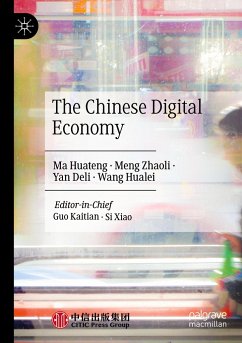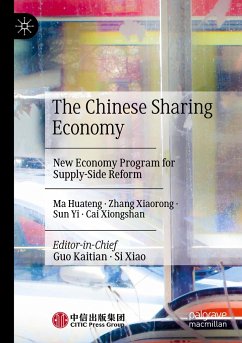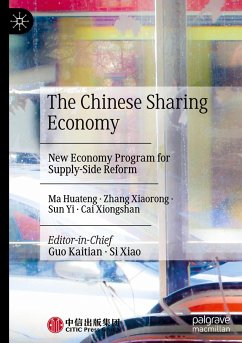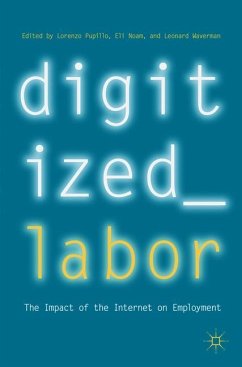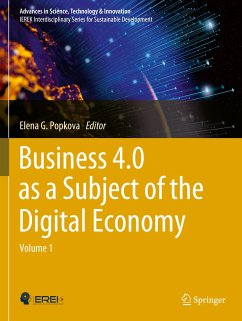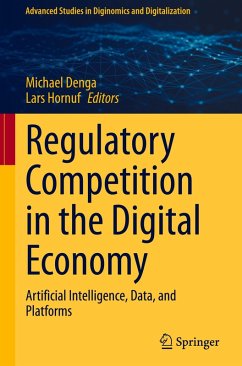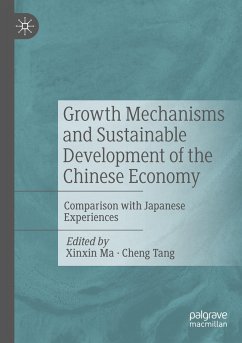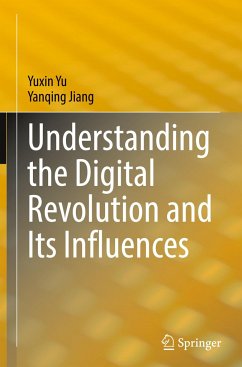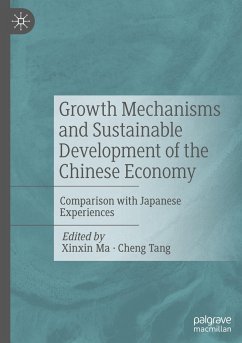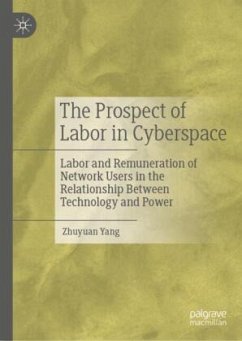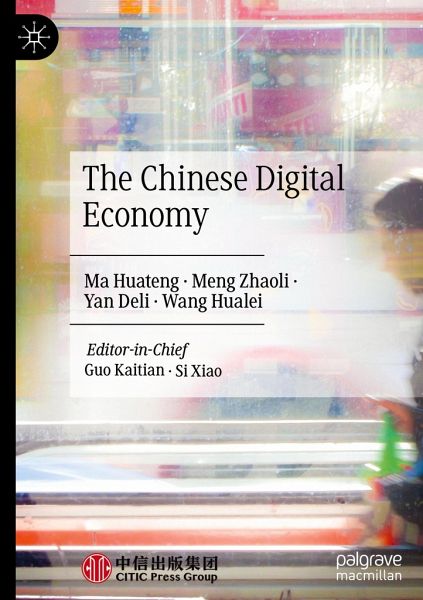
The Chinese Digital Economy
Versandkostenfrei!
Versandfertig in 6-10 Tagen
76,99 €
inkl. MwSt.
Weitere Ausgaben:

PAYBACK Punkte
38 °P sammeln!
This book points out that "Internet" is the means, and the digital economy is the result. Therefore, the development of digital economy will inevitably have a profound impact on traditional enterprises and Internet enterprises and become the main way and new driving force for China's innovation and growth.The book starts with the concept of digital economy and reveals the current development of digital economy, how to improve the foundation of digital construction, and the strategies for accelerating digital transformation of various industries, the problems that need to be solved in the devel...
This book points out that "Internet" is the means, and the digital economy is the result. Therefore, the development of digital economy will inevitably have a profound impact on traditional enterprises and Internet enterprises and become the main way and new driving force for China's innovation and growth.
The book starts with the concept of digital economy and reveals the current development of digital economy, how to improve the foundation of digital construction, and the strategies for accelerating digital transformation of various industries, the problems that need to be solved in the development of digital economy and the huge role it will play in promoting society. The book provides a clear blueprint for the government and enterprises to understand and formulate policies and development strategies in the era of digital economy.
The book starts with the concept of digital economy and reveals the current development of digital economy, how to improve the foundation of digital construction, and the strategies for accelerating digital transformation of various industries, the problems that need to be solved in the development of digital economy and the huge role it will play in promoting society. The book provides a clear blueprint for the government and enterprises to understand and formulate policies and development strategies in the era of digital economy.





